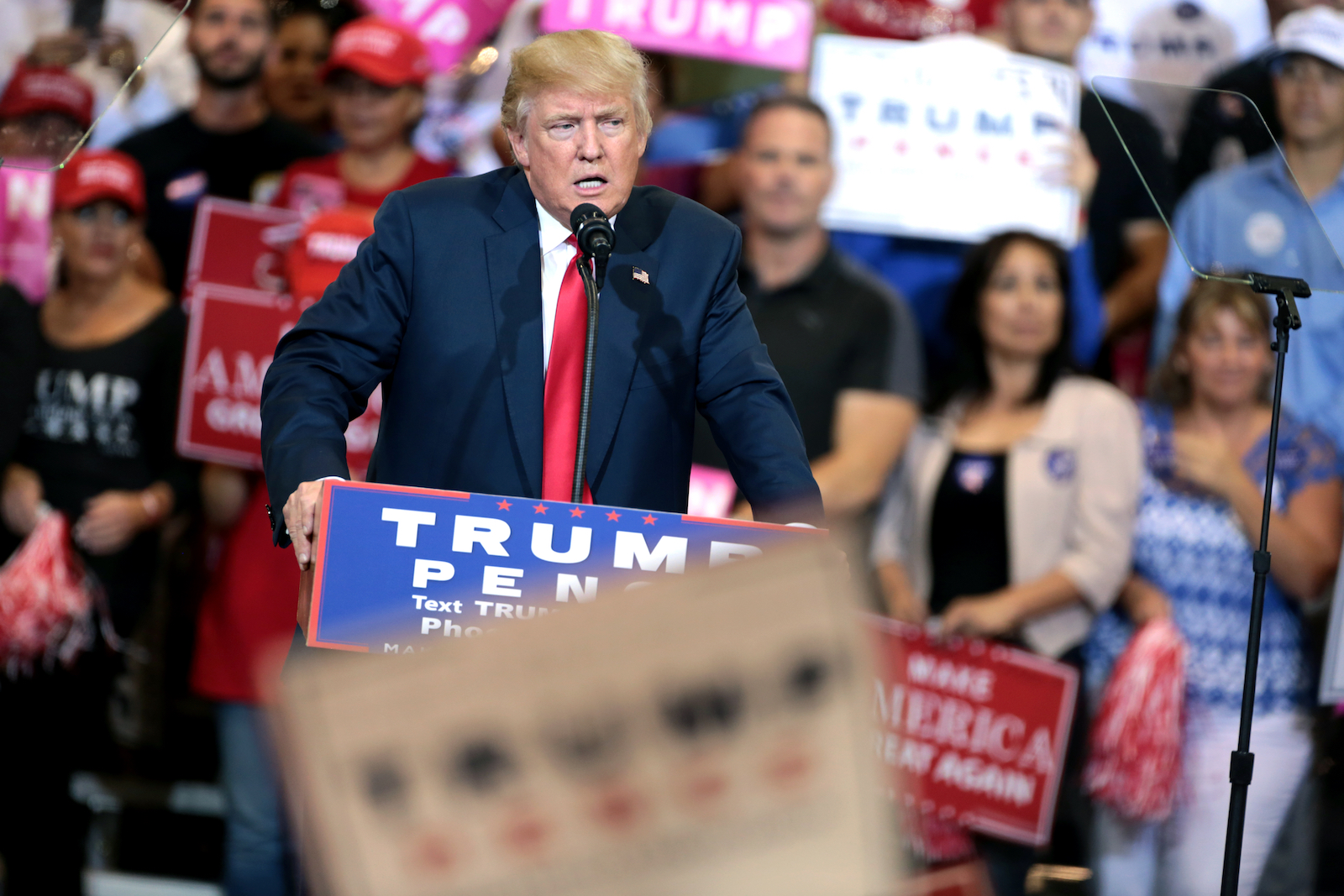
Politics
President Trump? Blame Both Parties
Political culture is a set of attitudes and practices held by a people that shape their political behavior, and includes moral judgments, beliefs, and ideas about what makes for a good society. It is not the political culture of a group within a national polity that defines it, but rather, all of its members. As such, it is not intellectually honest to attribute the political rise of Donald Trump solely to Republicans and the Republican Party. It is more complicated than that, and as the Trump story continues to unfold, something rather disturbing is being revealed about American political culture, and its voters.
Trump has become a political phenomenon because he has successfully tapped into the beliefs and fears of a lot of Americans, and while the majority tend to ally themselves with the Republican Party, some independents and cross-over democrats are also riding the Trump train. Recent research by Salon notes that an increased sense of economic peril substantially increases racial resentment among both liberals and Democrats. At above-average levels of economic peril, the resentment attitudes of white Democratic partisans become almost indistinguishable from those of Republicans. Additionally, the attitudes of white liberals become indistinguishable from those of ideological conservatives. For that reason, should Trump become the Republican nominee, there is reason to believe that there is a realistic chance he would be elected.
That is what is putting the fear of God into Republicans, and should be doing the same for the Democratic Party. A January 2016 poll by Mercury Analytics found that up to 20% of democrats would in fact vote for Trump in a general election.
When Trump talks about economic disenfranchisement, he isn’t just speaking to his core constituency (angry, white, blue collar, uneducated voters) who lap up his incendiary rhetoric. He is also resonating with some educated white collar democrats and independents who remain victims of the Great Recession, are equally sick and tired of ‘politics as usual,’ or don’t like Hillary or what she represents.
Republicans aren’t solely responsible for income inequality in America any more than democrats are for the country’s immigration problem. It has taken two to tango on these, and a variety of other topics, over the course of decades. While the Republicans can rightly be blamed for fanning the flames of bigotry and racism in America, and for failing to criticize it (loudly and repeatedly) whenever it appeared among its candidates for local, state and national elections, the Democrats can rightly be blamed for historically encouraging a sense of economic insecurity among blue collar voters on a regular basis.
It is America’s two-party system that has enabled Trump to rise, and both parties are to blame for failing to quickly and effectively object to the many outrageous things Donald Trump has said throughout the course of this campaign. Democrats have sat back and watched gleefully as the Republican candidates slug it out as if in a school yard sand box. Rather than strenuously objecting to Trump’s antics, they have been only too happy to watch the Republican Party seemingly self-destruct – or so they thought.
This presidential campaign has revealed some disturbing things about America and its voters. First, decades of bashing immigrants and minorities by Republicans has had a cumulative effect on the American psyche, appealing to the worst among voters inclined to be bigoted or racist. When combined with lingering economic insecurity, this has proven to be poisonous. Second, the failure on the part of both Democrats and Republicans to raise their voices and object whenever incendiary rhetoric has arisen has given a green light to demagogues like Trump to enter the fray and step on the gas pedal. Third, both parties have forgotten why their members were sent to Congress, who they represent, and the job they are ‘supposed’ to be doing. They also jointly own their abysmal failure to reach across party lines and introduce the word ‘compromise’ into their vocabulary to get things done. Lastly, the lines between Republicans and Democrats are less distinct than they have ever been. Cross-over and independent voters are likely to determine who will prevail in the end.
And while a number of pundits and pollsters are increasingly resigned to the fact that Trump has a legitimate shot at the nomination, not all Republicans are sold on the idea. Lloyd Claycomb, in an email with International Policy Digest, stressed: “No, I believe it’s (Trump’s nomination) is far from inevitable. Our indication is he will not make the full electoral votes required and we will end up in a contested convention. I do believe a deal will be made at that point that possibly could include Trump but his electability is still in high contention.”
Given that the disgust for Washington and politicians among the majority of voters on both sides of the aisle is unlikely to diminish in appeal by November, and given that the Republican Party is unlikely to be able to stop Trump – even with a brokered convention – the world may need to start envisioning America with a dangerous demagogue at its helm, at a perilous time in history. If the result is that Trump prevails, America’s political culture will be to blame. The question is, can it be fixed, and what price will be paid for this self-induced mess in the interim?
